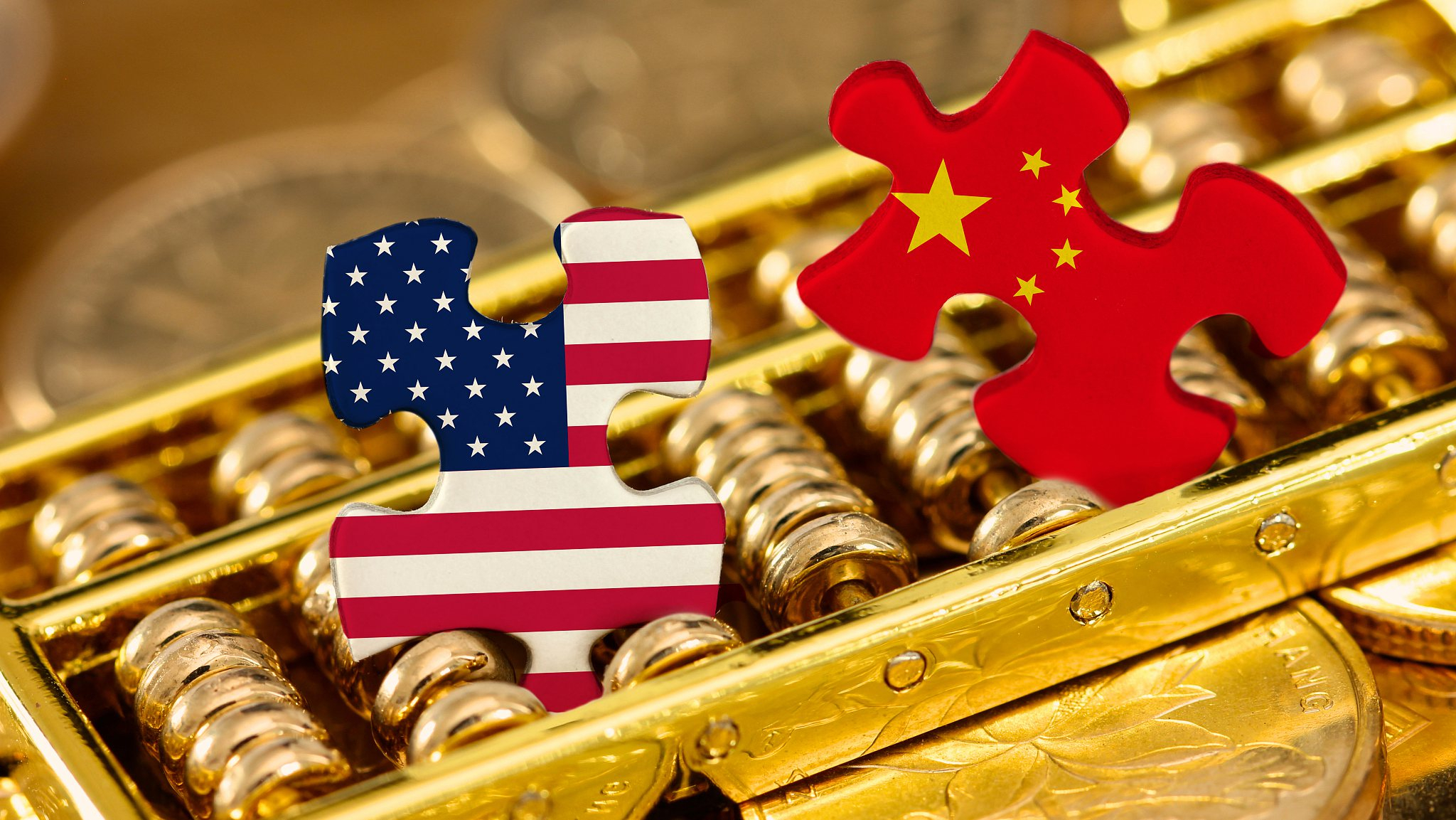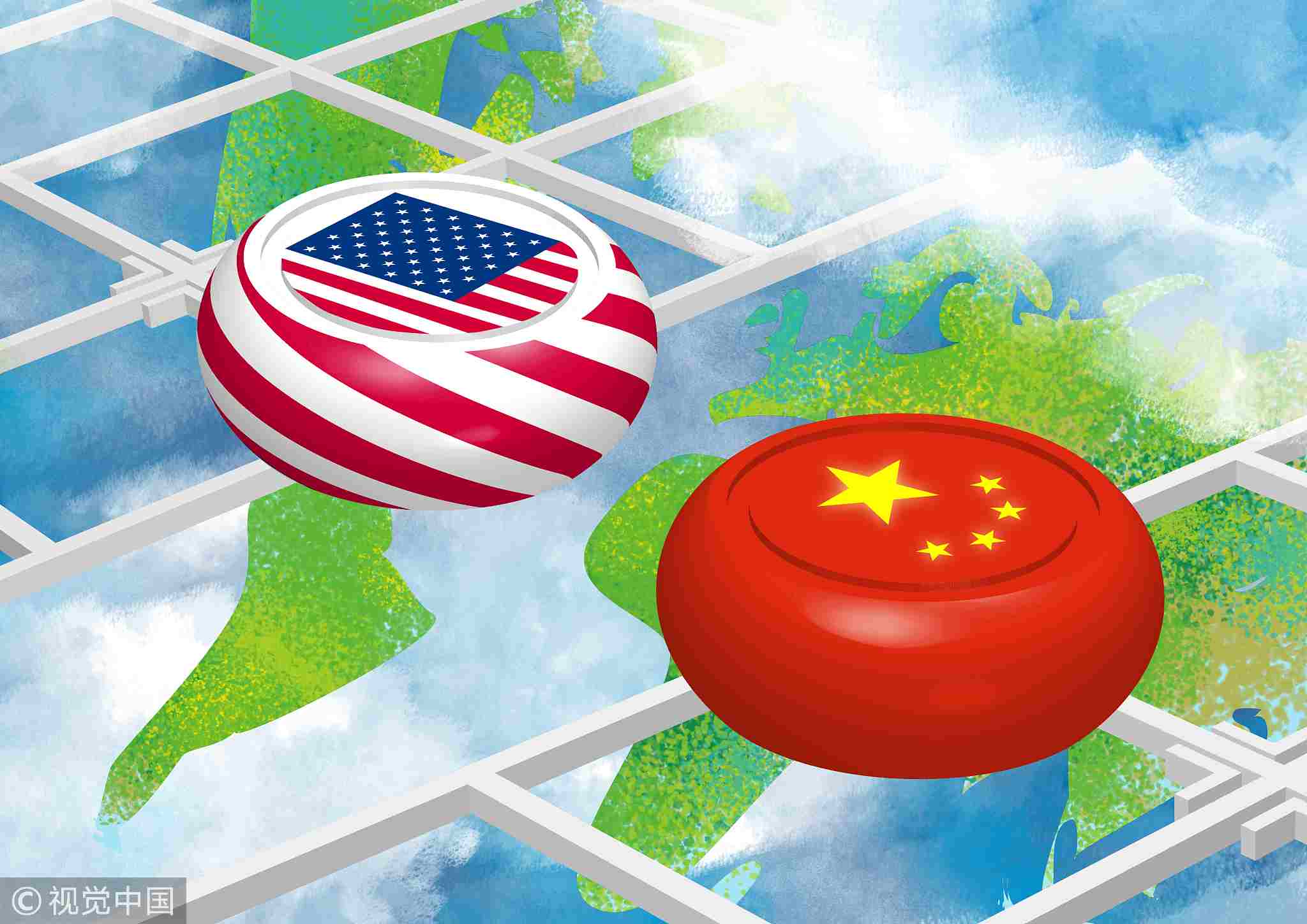
Opinions
17:17, 22-Aug-2018
Opinion: US-China full-blown trade war can be avoided
Updated
16:57, 25-Aug-2018
Andy Mok

Editor's Note: Andy Mok is managing director of Red Pagoda Resources. The article reflects the author's opinion, and not necessarily the views of CGTN.
According to Craig Allen, the new president of the US-China Business Council (USCBC), the trade conflict between China and the United States is only a skirmish and has not yet escalated into a full-blown war. He believes that a full-blown war may yet be avoided if trade and investment policies and decisions between the two countries are allowed to positively influence the overall relationship.
Allen is a former American diplomat whose positions included senior commercial officer at the US Mission to China where he managed the entire complement of 126 Department of Commerce staff from various agencies. He subsequently rose to Deputy Assistant Secretary for Asia and Deputy Assistant Security for China. With this governmental background, he brings a broad and deep appreciation for the complexities and challenges as well as opportunities facing American business in China. In his new role as president of the US-China Business Council, he seeks to foster better outcomes for the approximately 200 American member companies that invest in and otherwise do business with China.

VCG Photo
VCG Photo
In remarks this week to a contingent of foreign journalists and diplomats posted in Beijing, Allen noted that the current tensions are not solely due to the populist-powered commandeering of the Republican Party and US government by Donald Trump. While the new administration certainly has been the catalyst for the brewing trade war, Allen sees a key area that pre-dates the administration’s targeting of China: Market access for American companies.
While China has made remarkable progress in market opening and reform since accession to WTO, Allen believes that further progress is warranted and, if achieved in a measurable and prompt way, would provide a strong case for the Trump administration to adopt a less bellicose stance towards China.

Workers unload bags of chemicals at a port in Zhangjiagang in China's eastern Jiangsu Province on August 7, 2018. /VCG Photo
Workers unload bags of chemicals at a port in Zhangjiagang in China's eastern Jiangsu Province on August 7, 2018. /VCG Photo
With respect to market access, Allen points to government procurement, agriculture, financial services and film as areas of particular interest to USCBC members. In addition, raising of joint venture ownership limits and further advances in the consistent application of rules regarding FIEs (foreign investment enterprises) would strengthen and energize the business lobby’s voice in Washington for deescalating trade tensions.
Allen added that punitive tariffs against China are not the most effective tools for achieving the aims of the Trump administration and negatively impact the interests of American businesses and workers in unexpected ways. Tariffs are not only a tax on consumers but often result in second and third order effects that lead to economic distortions and a lack of predictability that businesses need in order to thrive. The addition of several more days of testimony by American businesses on the proposed latest round of tariffs illustrates how these tariffs have unintended negative consequences.
While expectations are generally low for the current round of discussions led by Vice Minister Wang Shouwen and Under Secretary David Malpass, Allen expressed optimism that progress will be made because the Department of Treasury is the primary US interlocutor. Because Treasury had a broader portfolio and mandate than just trade (global macroeconomic stability, monetary policy, managing US public debt, etc) it brings a more holistic perspective that can lead to a mutually beneficial outcome.
While opening shots have been fired, there is still time to avert a mutually destructive trade war if wiser voices prevail.

SITEMAP
Copyright © 2018 CGTN. Beijing ICP prepared NO.16065310-3
Copyright © 2018 CGTN. Beijing ICP prepared NO.16065310-3